Was I wrong to fall for a cheating cat?
- Published
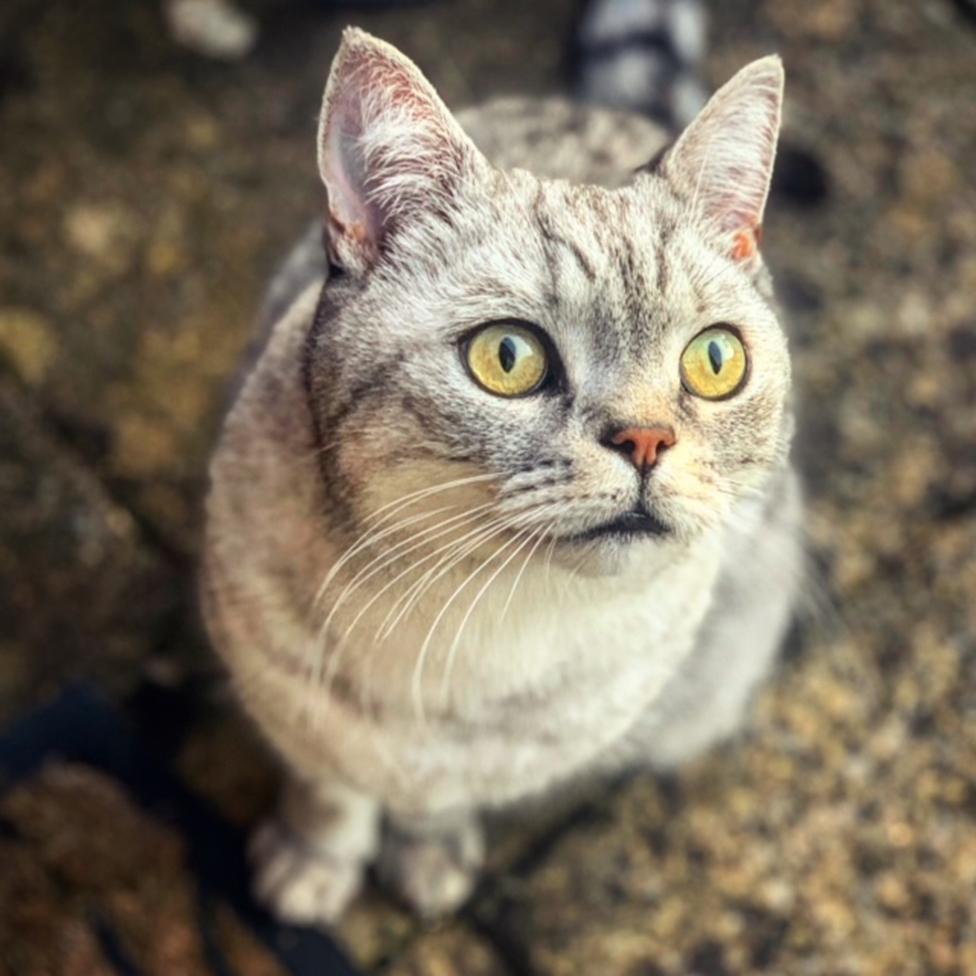

There's a well-known saying that goes, "You don't choose a cat, a cat chooses you." So what should you do, asks Anisa Subedar, when a persistent pussycat in the neighbourhood decides to adopt you?
For me, it began about 18 months ago, one long, hot summer evening when two huge wanting eyes, accompanied by serenading mews appeared at the kitchen door. It didn't recoil when I approached it. In fact it appeared quite pleased when I began speaking in ridiculously high-pitched baby speak (imagine the word "choochy-face" being used). Nor did it flinch when I softly stroked behind its grey, fluffy ears. Instead it lay on its back and allowed me to feel the softness of its white belly fur and loudly purred in gratitude. In appreciation that my affections were returned, I opened a can of tuna which it hastily scoffed and left.
I didn't think anything of it at the time other than that it was a cosy exchange. A summer memory made and I had performed a good deed.
A few days later The Cat returned and we behaved like two long lost friends. There was mutual loving, petting and nuzzles. I gave it some more food, it noisily ate and we parted ways again.
The meetings soon became a daily occurrence and something I found myself looking forward to. The Cat had taken to coming into the house, napping on the sofa and didn't mind being put out for the night when I went to bed. My evenings were now gloriously cosy. The stresses of the day instantly dissolved when The Cat and I would curl up together to watch television in the evenings. In retrospect, I should have stopped to think whether The Cat - though apparently in need of food and affection - lived with someone else. But I didn't. That only came later.

After a couple of months I bought a pet bed for The Cat to relax in and dedicated bowls for food and water. I would go to work, discover cat hair on my clothes and smile in anticipation of being together in the evenings. Photos of The Cat would appear on my social media. Colleagues at work would notice my online activity and ask, "How's your cat?" I would answer as if The Cat was mine, in denial about my new status as a catnapper.
Every time another new post would go up, a friend would regularly call me out in my comments: "IT'S NOT YOUR CAT."
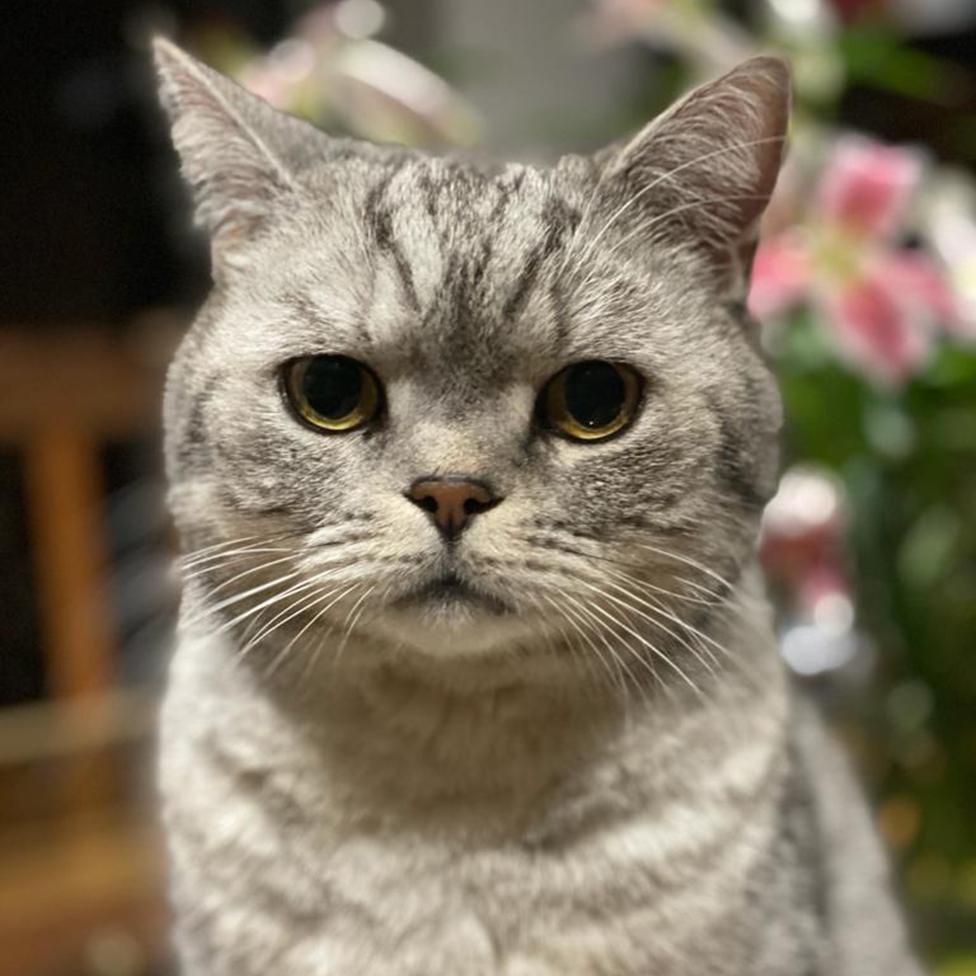

A quick internet search for the hashtag #notmycat revealed that I was part of a club. There were other people just like me - people enjoying the benefits of a cat but with none of the responsibilities of an owner. There are shiny, beautiful clandestine pictures and vlogs of humans and felines that don't officially belong together.
So is it normal?
"I do feel cats live on their own terms. I don't think they are deliberately deciding, 'I'm going to manipulate this human.' It's much more straightforward," says cat behaviour counsellor Celia Haddon. They find somewhere where they have food and warmth and a friendly human and try to stay there.
"The one thing about cats is they're enormously persistent. If you can have an animal that can wait for hours outside a mouse-hole waiting for a mouse, then you've got an animal who can wait at a door, if it wants to move in, for hours too."

Much later, I discovered there is a book about this.
Originally published in 1990, Six Dinner Sid is a children's book that tells the story of a cat called Sid, who lives at number one Aristotle Street. But Sid also lives at all the other houses on the street and eats at all the homes, whose owners all believe Sid belongs to them.
Unlike the real cats described by Celia Haddon, Sid knows very well what he is doing. But his manipulative plans unravel when he gets sick and the neighbours discover they're all being played.
Author Inga Moore tells me it was based on a black cat she knew when she lived in north London.
"I heard someone call him by a name which sounded like Sid," she says. (In fact his name was Ziggy.) "Sid used to come in through the cat flap and make himself at home at number four where I was living. I think his home was number six. Sid in the book was very much Sid in real life and he was the inspiration for the story, which is of course made up.
"I have had many cat visitors over the years and I've always enjoyed their company. Apparently they have developed an ability to communicate with human beings in a way they don't with other cats. They know how to get what they need from us by wheedling and being charming. It makes us love them and makes them special."
Joanna Lodge from the UK's largest feline welfare charity, Cats Protection, says scientists have speculated that it's cats' eyes, "reminiscent of the large eyes of a baby", that help them to win our hearts.
This would explain a lot: my need to infantilise my speech and my instinct to feed The Cat, gush with love and provide shelter. My maternal instincts came pouring out - along with my dignity. But in the months that followed our first meeting, I became ever more aware of a growing sense of guilt. I would look on local websites for lost cats wondering whether I would find an appeal from The Cat's owner, but found nothing.
I would be lying if I said I wasn't disappointed.

Then my affair came to a sudden end. The Cat vanished.
I waited days and nights and called into the sad abyss of my suburban garden. I felt bereft and abandoned and started scouring the internet again for news. Surely the only reason The Cat had stopped visiting was because it had been run over? It was probably lying in a ditch somewhere. But there was no news. I would look sadly at the empty bed where it had lain, the untouched food bowls and the strands of fur on my clothes that were now becoming scarce.
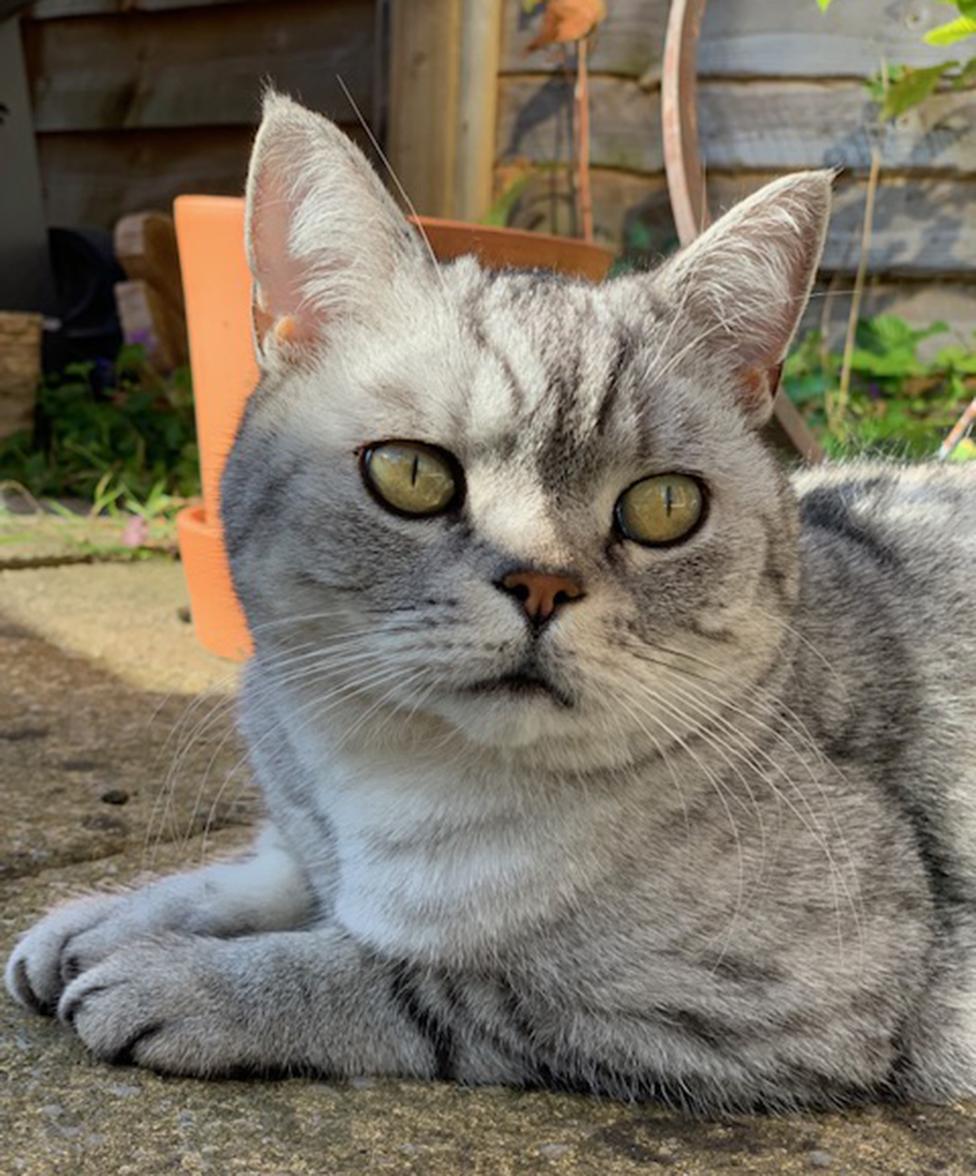

Then, in the first weeks of the spring lockdown, I had a chance conversation with my neighbour over the garden fence. I casually (though very deliberately) mentioned The Cat and was told the owners had moved. So it did have owners! I probably shouldn't have been surprised.
I was filled with feelings of relief followed by betrayal and confusion. How could they just take The Cat out of my life? I walked around the corner and looked longingly at the empty house that had once housed The Cat but was now devoid of life.
I wasn't going to give up without a fight. It was unimaginable that The Cat, who was once so satisfied with me, would be as happy with its owner in a new home far away. I emailed the owner via the estate agent and explained how The Cat and I had spent a significant amount of time together and if it didn't settle in the new abode and they were perhaps looking to re-house The Cat then I would be more than happy to be a permanent alternative. It seemed to me that we belonged together, I wrote, and that our friendship had been forcibly terminated without our consent (or something like that).
The Owner replied to my email.
His name was David. He explained that he owned two cats, a brown tabby called Henry, and Eddie, a silver tabby who was "often away for days". They had moved 120 miles away, to Lincolnshire, he wrote. The cats, "love the semi-rural environment, are very happy here and enjoy us now being with them all day," he added. "Naturally we could not bear to part with them."
He suggested that I should get my own cat.
"They are pedigree cats of the British Shorthair breed. You should be able to find a breeder and they are as delightful as kittens as you would imagine."
At the time, it was inconceivable to even think about any other cat. Eddie had chosen me.
In a follow-up email to David, I confessed the full extent of my involvement in Eddie's disappearance. I was filled with remorse.
David told me that Eddie's absences had been deeply distressing.
"We did not know if he had been knocked down or stolen, was locked in somewhere or just on the prowl having adventures," he wrote.
"We knew that Eddie would occasionally disappear for more than 24 hours. Usually this coincided with us spending a few days away. We would have a friend come in and feed the cats and make a fuss of them, but it became common that we would return to a house without Eddie. The truth is that each time it happens, you wonder if you will ever see him again. We got to the point that we would avoid going away."

What to do if a cat persistently visits your garden
Do not feed the cat
Check for a microchip
Use social media or other community channels (local messaging groups, notices in local vets) to try and find the owner
Put a paper collar (available from Cats Protection) on the cat with a message to alert the owner
Call your local animal shelter or organisation
Advice from Cats Protection

I recognised the pain of a missing cat, half-wishing Eddie had never appeared in my life a year earlier. I deleted all the social media posts of The Cat. I felt terrible.
I asked David if he was annoyed that I had contacted him to explain what had happened. He replied: "We recognised the pain that you and your family were feeling at having lost a cat that had become very precious to you and felt sympathy rather than annoyance. There was also some relief to finally understand what he had been doing and that he had not been suffering, cold and alone."
Then he told me that it was one thing to make a fuss of a cat when it visits your garden, and another thing to feed it. He urged me to stop doing this.
"We might have even reached an agreement whereby you could have fed them both at our house if we went away," he wrote. "But do not encourage a cat to stay away from his home. It is really distressing for the owners while it is happening and perhaps even more so for the adopted family if the owners move."

"Some cats are clearly feral and wild and they won't let you near them but if they're quite friendly, that will be quite a big clue that they will have had an owner at some point - or that they do still have an owner," says Joanna Lodge.
Her organisation, Cats Protection, provides paper collars that you can attach to a cat if you aren't sure whether it has a home. They have "Do I belong to you?" written on them, and this alerts the owner, if there is one, that someone is concerned.
"There are different responsibilities," Joanna says. "I think one is for the owner to make sure their cat can be identified by microchip. And for anyone who has a cat in the garden, they should try to find out if it's got an owner, or contact us and we can make efforts to find owners." In the latter case, it's a legal responsibility, she says, as it would be if you came across some lost property - you can't just take it for yourself.
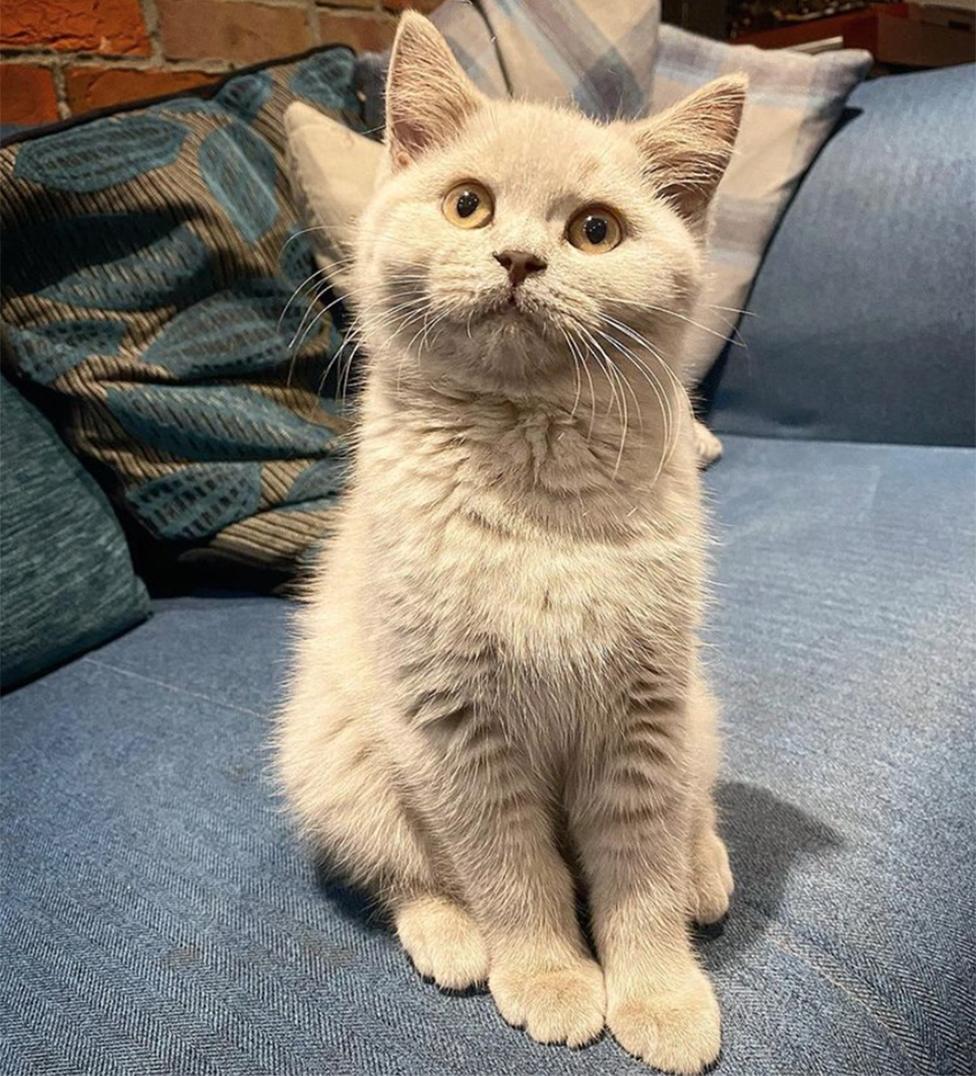

As the days got shorter and this year started drawing to a close, David's words about getting a cat resonated hard. I hadn't realised how much I needed the comfort of something purry and furry on my lap to soothe me during a time of such uncertainty.
So, in anticipation of a winter of discontent, a few weeks ago I picked up a 12-week-old British Shorthair. He's the colour of a latte and goes by the name of Horace.
I really don't plan to share Horace with anyone but as I've learned, that might not be entirely my decision so if you see him around, you know what to do.
Follow Horace The Cat, external on Instagram
You may also be interested in:
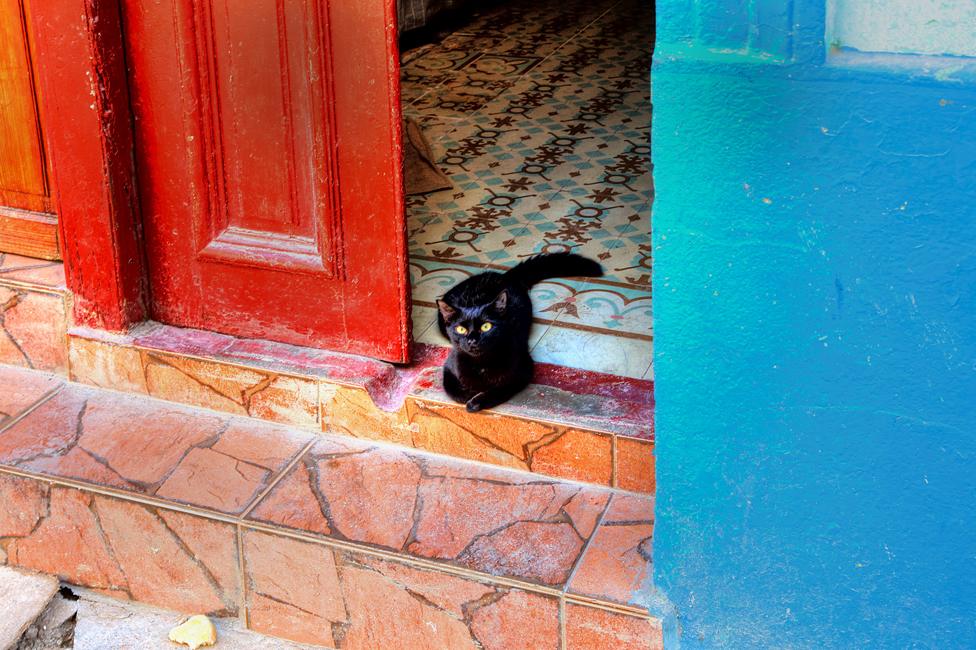
In Cuba's capital, armies of stray cats and dogs prowl the streets. The state does little to look after them, so responsibility lies with the public - as Will Grant found when he befriended a tomcat.